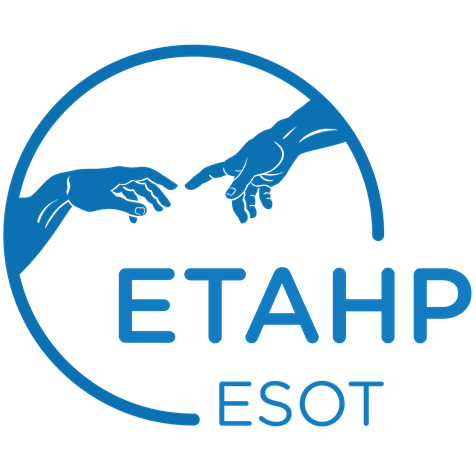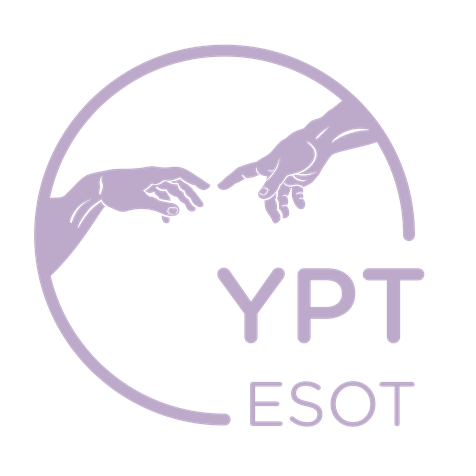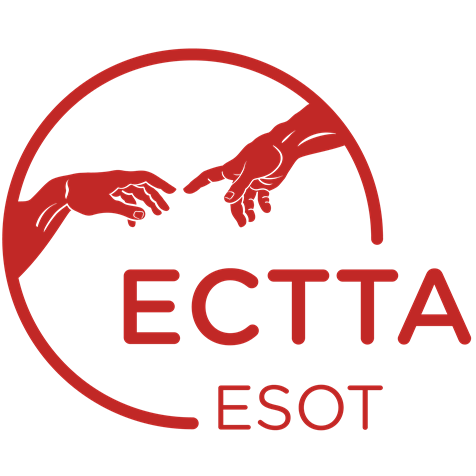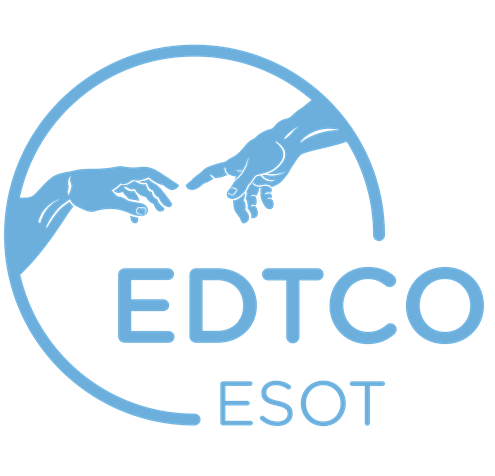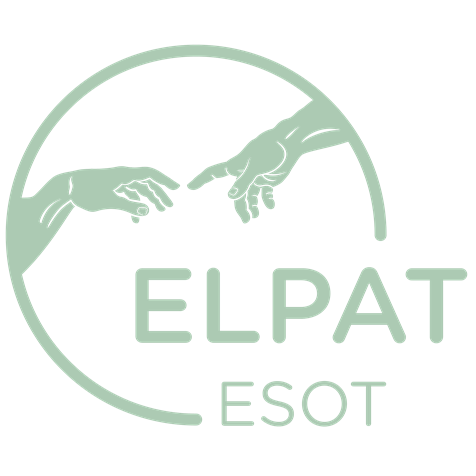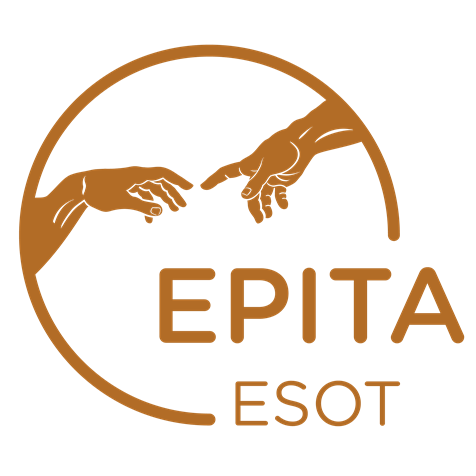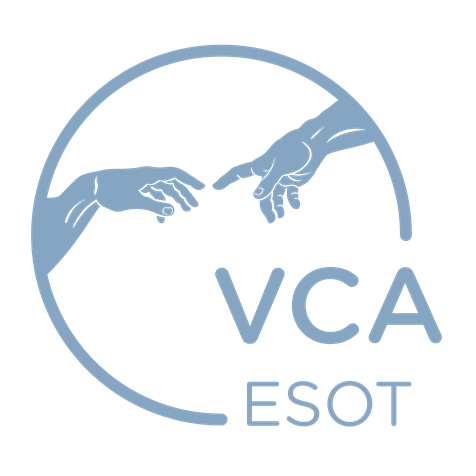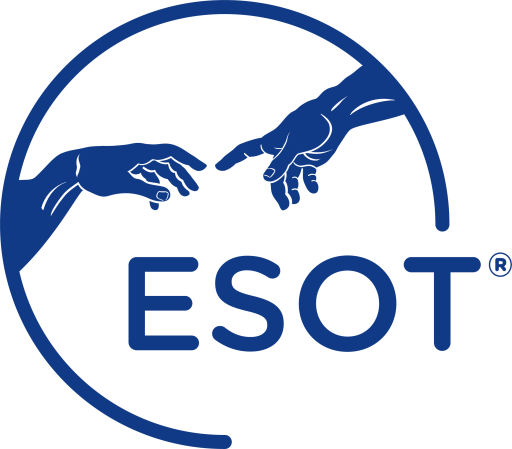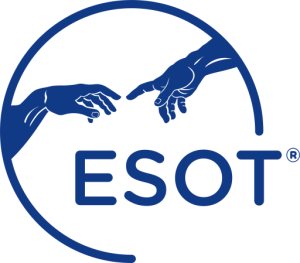European Society for Organ Transplantation
By-laws revised by the ESOT Council in December 2018; ratified by the ESOT General Assembly on 16 September 2019
Article 1 – Name and headquarter/incorporation
1. The Society bears the name: European Society for Organ Transplantation, henceforth referred to as: ESOT.
2. It has its headquarter/incorporation in the district of Amsterdam.
Article 2 – Purpose of the Society
1. The purpose of the Society is:
– Improving the outcomes and the access to care of patients needing or receiving transplantation or other organ/tissue substitution therapies, by advancement and sharing of knowledge and research in the field of donation and/or transplantation;
– creating a scientific forum for activities and international cooperation in the field of donation and/or transplantation;
– education and sharing of best practice in all areas of organ donation and/or transplantation
2. It aims to achieve this purpose, among other things, through:
– creating a forum for discussions about clinical and scientific experiences, introduction of confirmed experimental findings and new methods into clinical practice, legal and ethical problems and questions related to donation and/or transplantation and experimental research;
– supporting and encouraging participation in multi-centre studies;
– collaboration with other organizations, societies or authorities dealing with organ donation and/or transplantation;
– creating a wide-reaching platform for education and training;
– contributing to and supporting quality guidelines concerning donation and/or transplantation;
– creating an open forum for discussions between transplant health professionals and patients / patient supporting organisations.
Article 3 – Non-profit status
3.1 The Society has been convened indefinitely.
3.2 The Society has a non-profit status.
Article 4 – Membership
4.1.The Society has European members, international members and honorary members. For the purpose of the membership, Europe is defined as all countries that are members of the Council of Europe.
4.2 European members are persons residing and practicing in Europe and involved in organ donation and transplantation. They have joined the Society having completed the application which is supported by two bona fide ESOT members. Several tiers of membership are identified to reflect the different financial contribution towards the annual cost of the membership and are detailed in section. Only European members can stand for the offices of the Society and its sections and committees. If a European member transfers residence outside Europe, he/she will become an international member automatically and lose the right to vote and office election privileges but will retain all other membership rights.
4.3. Honorary membership recognises an outstanding contribution in the field of organ donation/transplantation. Honorary members are nominated by the Council and the membership is conferred at the ESOT Congress. They enjoy all benefits as a member of the Society but cannot vote or stand for offices.
4.4. International members can be persons, residing outside Europe who have applied for membership in the same way as a European member. They enjoy all benefits as a member of the Society but cannot vote or stand for offices.
4.5. The ESOT office approves admission for new members. If membership is denied, an appeal must be lodged and discussed by the Council. If the Council upholds the decision, the General Assembly has the final say on admission. Members may express their affiliation to one or more sections any time after admission into the Society.
4.6. Membership is personal and cannot be transferred or obtained by inheritance. All members must be in good standing order with their national professional governing bodies.
The rights and obligations are enforced by virtue of the bylaws.
Article 5 – Termination of membership
5.1. Membership ends:
a. through death of the member;
b. through cancellation by the member;
c. through termination by the Society;
5.2. Cancellation of membership by the member takes effect at the end of the calendar-year in which the cancellation takes place. The member should inform the ESOT office of the intention to cancel the membership with one month notice.
5.3. Cancellation of membership on behalf of the Society can occur under the following circumstances:
– when a member has not met the financial obligations toward the Society in spite of repeated reminder notices during two years, the ESOT Executive can cancel membership and informs the Council at the next meeting;
– when the member has ceased meeting the professional standards as stated in article 4.6. or displayed offensive and irresponsible behaviour towards ESOT and its governing body, the Council view will be thought as a matter of urgency (email) and membership will be ceased with immediate effect afterwards.
When a member acts contrary to the bylaws, regulations or the ethos of the Society or if a member unreasonably harms the Society, the Council view will be thought as a matter of urgency (email) and membership will be ceased with immediate effect afterwards
5.4 The ESOT Office on behalf of the Council notifies the member about the decision as soon as possible, stating the reasons for membership cancellation.
5.5. The cancellation may be with an immediate effect and will be communicated in writing to the member.
5.6 The member has the right to appeal against the Council decision. The General Assembly is the appeal forum and its decisions are final. During the period of appeal and pending the outcome of the appeal, the member is suspended with no voting or standing for office rights.
Article 6 – Members’ rights and obligations
6.1. All European members have the right to attend the General Assembly (GA) and vote on the matters presented at the GA.
6.2. Any European member has the right to raise issues relevant to the Society in writing to the Executive or at the time of GA.
6.3. All European members in good standing order have the right to be elected to Society office. Members can self-nominate or be proposed by other Society members and candidacy should be supported by at least two other members in good standing order.
6.4. All European members can apply to Scholarships and Bursaries if they fulfill the application criteria.
6.5. All members (European and International) have access to the educational, training and knowledge sharing portfolio of the Society.
6.6. All members have the obligation to notify the Society if they wish to cancel their membership or if there is an incompatibility between the member status and the current bylaws.
6.7. All members have the obligation to observe the bylaws of the Society and the individual rules and regulation of the sections and committees they are affiliated to.
Article 7 – Financial means
7.1. The Society’s financial means consist of:
a. annual contribution and any additional contribution by members;
b. donations, sponsorship contributions, inheritances and legacies;
c. earnings from Society activities;
d. other earnings.
7.2. The Society reserves the right to establish differential membership fees for members representing different constituencies. These will be proposed by the Council and approved at the GA. This reflects the various tiers of membership defined below:
– Regular membership fee
– Trainee membership fee (students and trainees < 32 years of age
– Non-medical membership fee (nurses, coordinators, laboratory scientists, psychologists, ethicists, basic scientists)
– These tiers will be applicable to both European and International membership.
7.3. Honorary members are exempt from paying membership fees.
Article 8 – Executive
8.1. The Executive of the Society consists of the President, Secretary, Treasurer, Past President, President elect, and Chief Executive Officer.
8.2. The role of the Executive is to ensure the daily management and governing and provide strategic direction for the Society.
8.3. Any two members of the Executive have the power to represent the Society in its interactions with the national transplant organisations, other societies, patient organisations and governmental institutions in Europe and beyond.
8.4. The Executive also prepares Council meetings and General Assemblies.
8.5. Executives may at any given time be suspended if there are disciplinary matters or if they are in breach of article 4.6. The General Assembly has the final decision on whether membership should be terminated. During the period of suspension, the Executive seat remains vacant.
8.6. In case of an Executive seat becoming vacant during the mandate, an interim election should be held at the discretion of the Council. The interim office holder may apply for a full mandate afterwards.
8.7. If the Presidency becomes vacant, the President Elect will assume the mandate and serve the remaining time and the length of the mandate proper.
8.6. The Chief Executive Officer has the overall responsibility for the running of the Society Office.
Article 9 Council
9.1. The Council is the Society’s executive forum that governs the Society between GA meetings. It consists of the Executive, eight elected Councillors and Elected chairs (or deputies) of the Sections and Committees. The Executive may propose changes in the number of Councillors according to the Society’s needs. These have to be approved at the earliest General Assembly.
9.2. The Council should have diversity as well as geographical representation. It is preferred that two Councillors represent each of the following regions:
1. Western Europe (UK, Ireland, France, Belgium, Netherlands, Luxembourg, Germany, Switzerland, Austria, Czech Republic. Lichtenstein)
2. Northern Europe (Denmark, Norway, Sweden, Finland, Iceland, Lithuania, Latvia, Estonia)
3. Southern Europe (Spain, Andorra, Portugal, Italy, Greece, Malta, Turkey, Croatia, Slovenia, Macedonia, Cyprus, San Marino, Albania, Bosnia Herzegovina, Montenegro, Monaco)
4. Eastern Europe (Poland, Slovakia, Hungary, Romania, Bulgaria, Serbia, Moldova, Ukraine, Russia, Belarus*, Georgia, Armenia, Azerbaijan) (*currently not a Council of Europe member)
9.3. The co-Chairs of the ESOT College of the Presidents of the National Transplant Societies will be invited to attend the Council on an alternate basis, without voting rights.
9.4. The Council approves the Society’s engagement in legal, financial or other agreements. Decisions are made with a simple majority of votes.
9.5. The Council assembles at regular intervals (no longer than six months) or in extra-ordinary sessions if required by the Executive or five members of the Council. At least one of the yearly meetings must take place in the country where the Society is officially registered.
9.6. The Council must be quorate to pass any decisions. The minimum number of Councillors required is 50% + one. Decisions are adopted by simple majority of the attendees.
9.7. The Council is authorised to establish commissions and/or short lived working parties for specific issues as agreed at the Council meeting /GA. The Council may determine and alter the task assignment and the composition of these commissions and groups. The Council is responsible for defining the tasks and providing the terms of reference for these groups.
9.8. The Council may, by written authorisation, allow members of the Executive or the Council if required, to represent the Society within the limitations of the power of attorney, if there are legally binding documents to be signed.
9.9. Councillors may at any given time be suspended if there are disciplinary matters or if they are in breach of article 4.6. Any disciplinary matters brought to the attention of the Executive must be proven formally before putting them to the General Assembly. The General Assembly has the final decision on whether membership should be terminated. During the period of suspension, the Council seat remains vacant.
9.10. The role of Councillor is not a privilege. The elected Councillor should actively contribute to the leadership of the Society through specific projects in the Council.
9.11. Councillors should not hold a concomitant position on the Boards of Sections and Committees during the Councillor mandate.
9.12. The Councillors should make reasonable effort to attend all Council meetings. The Executive is responsible to ensure that the Council dates are advertised with plenty of notice to enable this. Councillors who failed to attend three consecutive Council meetings without exceptional reasons will be released from the Council. Councillors will be drawn attention to this matter prior to the third consecutive meeting.
9.13. The suspended Councillor is given the opportunity to appeal to the Council and may have an advisor to assist. A decision should be taken at the next Council meeting and if the Councillor is discharged from duties, an interim election should take place.
9.14. If a Council seat becomes vacant, the Executive should organise interim elections. The new Councillor who serves less than a full mandate has the right to be elected for a full mandate upon completion of the interim position period.
9.15. All Council matters should be ratified by the GA. As GA takes place every two years, in the intervening period the Council should seek the GA views via alternative methods (paper or electronic ballot or notifications).
Article 10 Sections and Committees
10.1. The Council is authorised to establish or dissolve sections and committees and to grant them responsibilities according to the Statutory aims of the Society.
Establishing or dissolving a section/committee must be approved by the General Assembly according to the same rules of dissolution as for the Society. If a new Section is created, a formal approval should be obtained at the next General Assembly.
10.2. A section means a professional group with a specific role/interest/expertise in the field of donation and/or transplantation.§
At present the Society has the following sections:
– European Liver and small intestine Transplant Association (ELITA)
– European Pancreas and Islets Transplant Association (EPITA)
– European Cardio-Thoracic Transplant Association (ECTTA)
– European Kidney Transplant Association (EKITA)
– European Donation and Transplant Coordination Organisation (EDTCO)
– Ethical, legal and psychosocial aspects of transplantation (ELPAT)
– Vascularised Composite Allotransplantation (VCA)
– European Cell Therapy and Organ Regeneration Section (ECTORS)
10.3. A member of the Society can be affiliated with multiple sections that reflect their professional expertise and interests.
10.4. A committee can have cross-disciplinary representation and has a specific task as defined by the GA and the Council. Members are elected to a committee in the same way as Councillors (membership wide nomination and voting).
At present the Society has the following committees:
– Basic science committee (BSC)
– Education committee (EC)
– Young professionals in transplantation (YPT)
– European Transplant Allied Healthcare Professionals (ETAHP)
10.5. Each section/committee is governed by a board (the section/committee board). The board is accountable to the assembly of the section concerned.
10.6. A section can formulate section regulations. These may delineate how offices for the Section are elected, the frequency of Section meetings and other such details. However, all these regulations must be in accordance with the overall bylaws of the Society.
10.7. Officers for the Section may be appointed by methods which should be plain and transparent. Each Section may decide how many officers should be appointed. Sections should also decide the length of term of office in keeping with the overall terms of office of the Society Council and Executives. They should also have a logical succession plan in place. Section and Committee chairs cannot be re-elected.
10.8. Individual activities of sections cannot conflict with the purpose and the policy of the Society, as propagated by the Council.
10.9. If the board members of a section represent that section externally, this must take place on the basis of an appropriate mandate granted to the board of the section and by the Council of the Society.
10.10. Funds should be raised by the Section in the process of planning specific Section’s activities. This process should be in close liaison with the Treasurer of ESOT in order to avoid duplication or multiple approaches to the same potential sources of funding. Hypothecated funds are maintained within the overall account system of ESOT.
10.11. Officers of the Section are required to plan ahead in order to examine the budget cycle so that each Section is not over-committing funds and in order that the budget cycle can be presented to Council and agreement obtained if there is extra funding required for the Section.
10.12. Any disputes within a board of a section or committee or between different sections, are discussed and resolved in the Council. The Council has executive decision in any such matters.
10.13. If the Society and a section hold different views about the dissolution of the section, an appeal to the Council can be made and the matter is discussed in the next Council, with the decision reached being definitive. The Council informs the section about the decision as soon as possible.
Article 11 General Assemblies
11.1. The General Assemblies are held every two years or more frequent if required by the Council.
11.2. All members in good standing order have access to the General Assembly. Only European members have voting rights in the GA. A suspended member has access to the meeting in which the decision about membership is being discussed, but has no right to vote unless suspension has been rescinded.
11.3. Each voting member may grant a written voting mandate to another voting member. A voting member may act as representative for at the most two other persons.
11.4. The voting in General Assembly is by show of hands except for decisions about membership suspensions/removal, which are by secret ballot. Decisions are taken by simple majority of those present.
11.5. In extra-ordinary situations when decisions requiring General Assembly approval are needed in between regular GA meetings, the Executive can request an on-line vote from the membership. The decision is taken with simple majority of the votes cast. The ESOT Secretariat is required to advertise the vote with a minimum of one-month notice and is in charge of collecting the votes and providing the result to the Council.
11.6. The General Assemblies are presided by the President or, in case of absence, by a member of the Executive. In the unlikely eventuality of no member of the Executive being present, the GA will be presided by a nominated Councillor.
11.7. The outcomes of voting procedures in the General Assembly, are definitive.
11.8. Minutes of the topics discussed in the General Assembly are kept by the Secretary or by a nominated person, appointed by the President. These minutes are approved during the next General Assembly and are signed by the President and the Secretary of that Assembly.
Article 12 Budgeting and auditing processes
12.1. The fiscal year of the Society is equal to the calendar-year. The treasurer presents the annual report about the state of affairs of the Society and about the policies pursued in the Council meeting before the end of the calendar year. The two years’ reports are presented and approved in the General Assembly.
These documents are signed by the Executive; if the signature of one or more of them is missing, this is indicated stating the reasons. The financial documents can be obtained by any member by request to the Council.
12.2. The Society appoints an auditing company to review the financial status of the Society on an annual basis.
12.3 Any questions concerning the reliability of the documents referred to in article 12.1 should be addressed by an accountant as referred to in article 2:393 item 1 of the Dutch Civil Code. This should be submitted to the General Assembly, who has the right to appoint a commission of at least two members who are not part of the Council to investigate the financial matters disputed.
12.4. The Council must provide to the commission all required information for the benefit of the examination, and if required, show the financial books of the Society, disclose the assets and allow access to the files and records of the Society.
12.5. If this examination after the judgement of the commission requires special accounting expertise, an expert may be recruited at the expense of the Society. The commission presents a report of its findings to the General Assembly.
Article 13 – Vote of no confidence
13.1. General Assemblies are convened by the Council or by membership if there is a vote of no confidence in the Council.
13.2. At the written request of at least one tenth of the Society voting members, the Council is obliged to convene an extra-ordinary General Assembly, to be held within eight weeks after the submission of the request.
13.3. If that request is not granted within one month, the Society members that have requested the GA, may proceed to summon a General Assembly themselves. The voting members may then charge others than the Councillors with presiding the Assembly and with the keeping of minutes.
13.4 The summoning of a General Assembly by Society members takes place by written announcement / email to the voting members with at least one-month notice.
Article 14 – Office and Elections
14.1. Terms of office
14.1.1. President – two years
14.1.2. President elect – two years
14.1.3. Past President – two years (ex-oficio)
14.1.4. Secretary – four years
14.1.5. Treasurer – four years
14.1.6. Councillor – four years
14.1.7. Chairs of Sections and Committees – elected for a fixed term as determined by the relevant sections and committees.
14.1.8. Executive officers may not serve again in same positions with the exception of the situations described in 8.6 and 8.7.
14.2. The members of the Executive are elected by the Council through secret ballot. If there is more than one nomination for a position, the candidate who secures the highest number of the casted votes is elected. All appointees need to be confirmed by the GA before taking up the post.
14.3. Councillors are elected from the general membership of the Society and voted by the entire membership of the Society. Councillors are elected according to the number of votes secured during the ballot and taking into account the geographical representation across Europe as described in article 9.2 whenever possible.
14.4. Councillors can be nominated for re-election after four years but can only be elected in open competition, through the regular open call election process. If a Councillor is re-elected, they can serve only one additional mandate.
14.5. All Council and Executive elections must be confirmed by the General Assembly before the elected member takes up the post.
14.6. Section and committees chairs are elected from within the respective membership for a period as determined by the rules and regulation of each section and committee
14.7. The maximum term as Chair should not be longer than one mandate. Each section and committee should define voting procedures in case of un-expected vacancies.
14.8. All officers are elected ate regular intervals through well advertised election procedures. If seats (Executive or Council) become vacant un-expectedly, interim ballots should be organised as decided by the Council. The interim mandate does not count towards the maximum period of service as described in these bylaws.
14.9. Wherever reference is made to ballots these should be regarded as paper and/or electronic ballots.
14.10. The Chief Executive Officer of the Society is appointed through an interview process by the Society Elected Executive. The terms of reference and the appointment process should be clearly defined at the time of the job becoming vacant. The duration of the appointment may not be time limited and the terms of office are defined in the appointment contract. The appointment is ratified by the Council.
Article 15 – Change of Bylaws
15.1. A change of the Bylaws can only take place with a decision by the General Assembly, which should be informed that a change of the bylaws will be proposed.
15.2. A consultation period of two months is required prior to the revised bylaws being submitted for consideration by the General Assembly. A copy of the final proposal (after consultation) should be provided to the entire membership ahead of the GA. This should include all proposed changes and be accessible to the members until the moment when the Assembly is held.
15.3. The General Assembly can decide upon changing the bylaws with a simple majority of the votes casted.
15.4. The change of Bylaws becomes effective only after a notarial act has been drawn up.
Any member of the Executive or the Council can be authorized to draw up the act of change of Bylaws as agreed by the General Assembly and in accordance to article 9.8.
Article 16 – Dissolution and settlement
16.1. The General Assembly is the only forum that can determine the dissolution of the Society.
16.2. The General Assembly will determine the allocation of any residual capital/funds and assets upon the dissolution of the Society. This should be according to the stated aims of the Society (article 1).
16.3. After dissolution, the Society continues to exist for a liquidation period no longer than one year, to allow for the distribution of the residual capital and assets. During this period, the stipulations of the Bylaws remain valid. In documents and announcements that originate from the Society, the words “in liquidation” must be added to its name.
16.4. The liquidation period ends at the point when no profits or assets belonging to the Society exist anymore.
16.5. The files and records of the liquidated Society must be kept for a minimum of seven years after the liquidation has been completed. The keeper is the person appointed as such by the Society.
Article 17 – Regulations
17.1. For all matters not accounted for by these Bylaws decisions are made by the Council.
17.2. The General Assembly may determine and change any bylaws and regulations for the Society itself, as well as for the sections or committees.
17.3. A regulation cannot contain any stipulations contrary to the law or to these Bylaws.
17.4. Any regulations should be changed in accordance with article 15.1-15.3.


